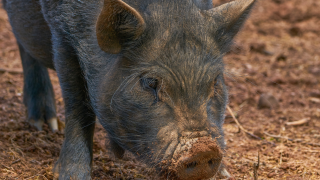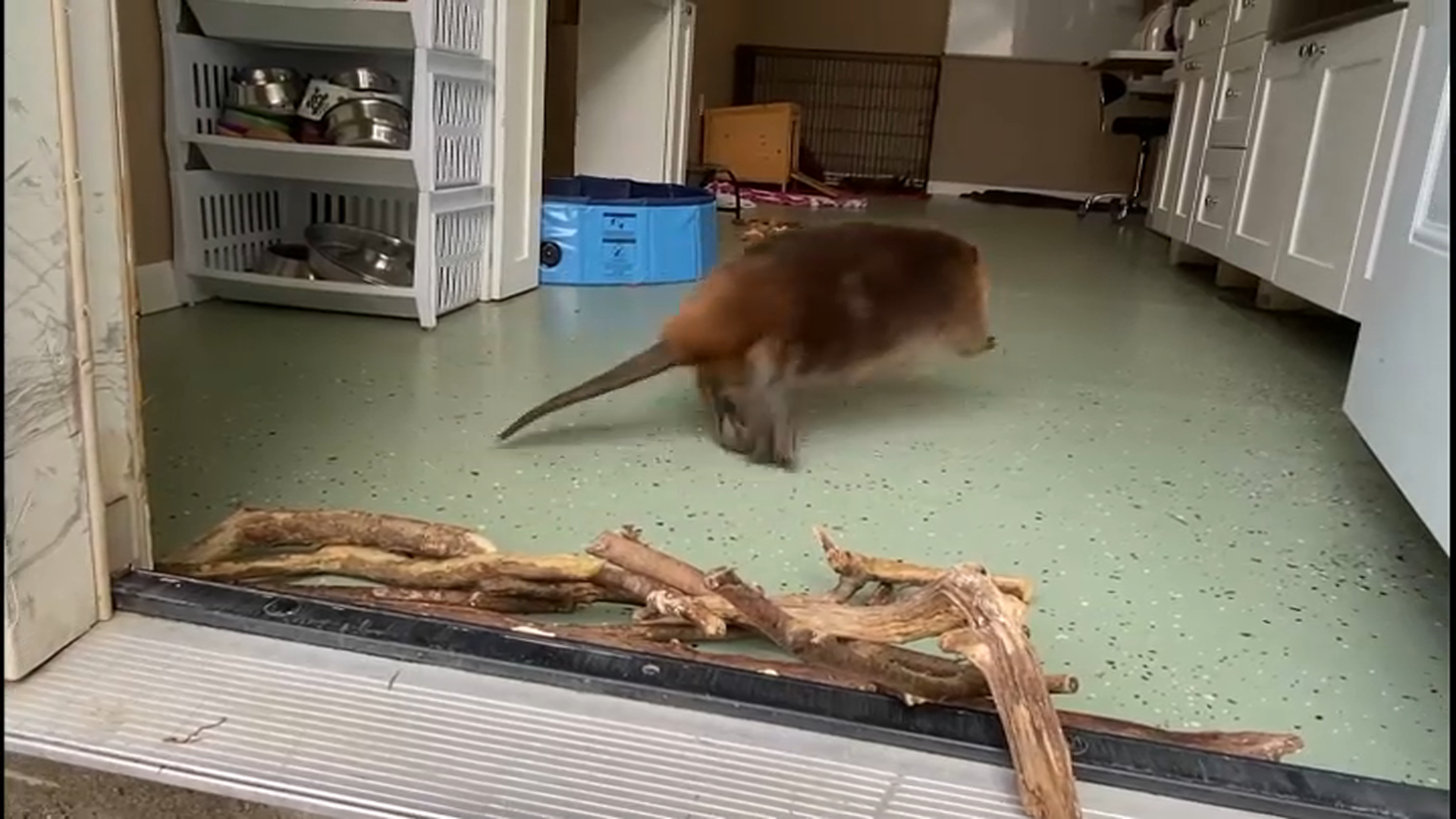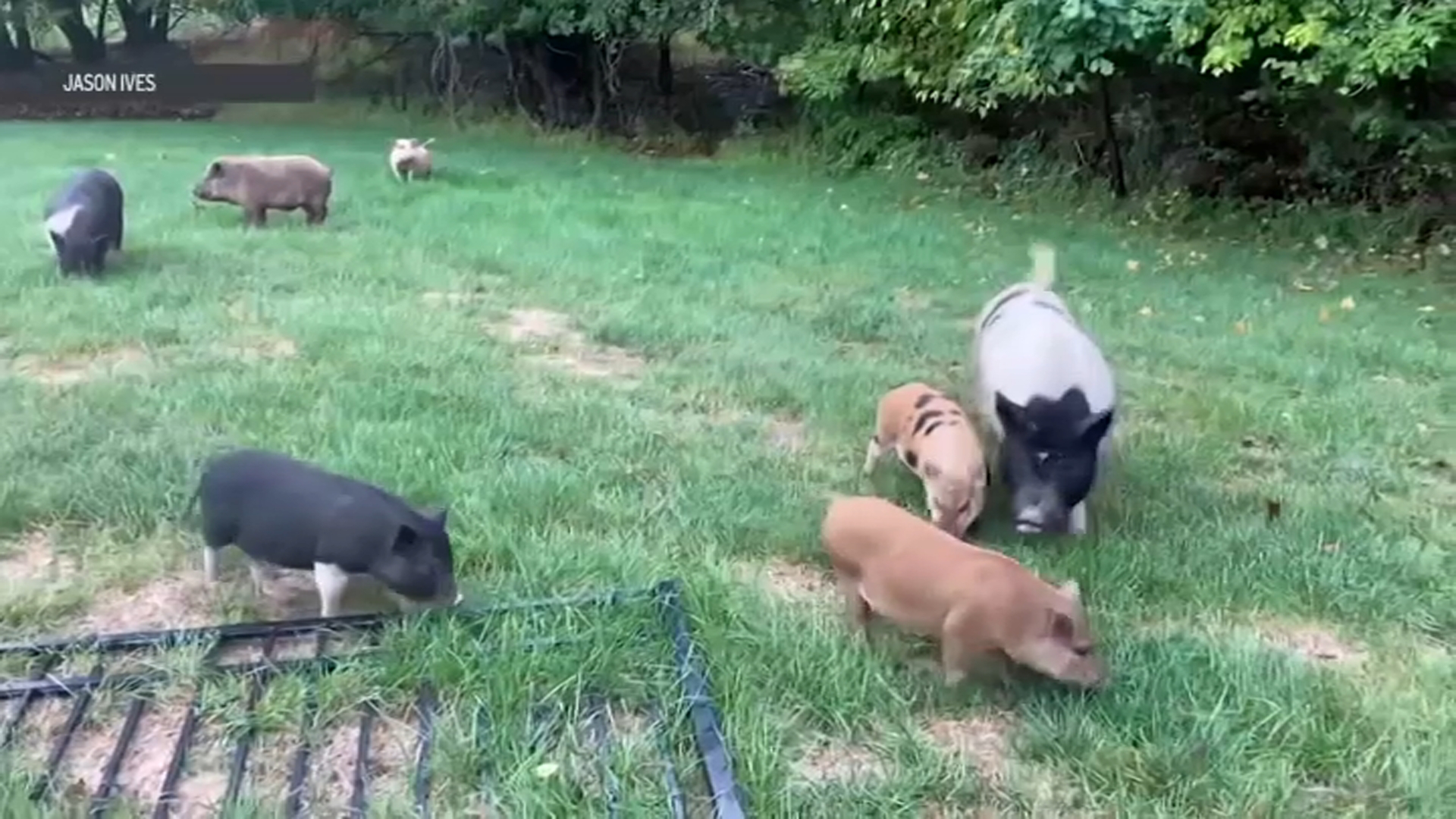
What to Know
- Potbellied pigs are running wild in Delaware and the state's Department of Agriculture is calling on pig owners to help secure the animals and keep their population down.
- “People selling potbellied pigs entice pet owners with marketing terms such as micro pigs, teacup pigs, mini pigs, pocket pigs, and pygmy pigs,” a spokesperson for the Department wrote. “New pet owners believe they will have a cute little piglet to love, but as these animals age, the pigs can grow quite large while becoming hard to handle and difficult to contain.”
- The Department is encouraging owners in Delaware to spay or neuter their pet pigs to prevent unintended litters.
Potbellied pigs are running wild in Delaware, causing a nuisance to landowners, damaging natural resources and increasing the risk of disease, the state’s Department of Agriculture warned Thursday.
“People selling potbellied pigs entice pet owners with marketing terms such as micro pigs, teacup pigs, mini pigs, pocket pigs, and pygmy pigs,” a spokesperson for the Department wrote. “New pet owners believe they will have a cute little piglet to love, but as these animals age, the pigs can grow quite large while becoming hard to handle and difficult to contain.”
The pet pigs becoming strays has led to an increase in the animals running at large in Delaware since 2016, according to the Department. Owners who can no longer manage the pigs often give the animals up, allowing them to roam.
Get Southern California news, weather forecasts and entertainment stories to your inbox. Sign up for NBC LA newsletters.
“Due to the ability of potbellied pigs to reproduce at a very young age, the state must ensure that a feral pig population does not become established, which could rapidly lead to the spread of disease and property damage,” the Department wrote.
Read More: Animals
Male potbelly pigs can breed as early as eight weeks of age while females can become pregnant at three months. The pigs can weigh between 70 to 200 pounds and live up to 15 to 20 years. The pigs can also carry diseases – such as salmonella or even swine flu – that are harmful to both humans and animals.
The Department is encouraging owners in Delaware to spay or neuter their pet pigs to prevent unintended litters. The Department also said neutering the pigs can help decrease the animal’s aggression and need to roam when in heat.
“As potbellied pigs are a non-native species, swift action will be taken to mitigate any threats they pose to Delaware lands, livestock, natural resources, and human health,” the Department wrote. “The pigs will be dispatched immediately if they are found at large on state-owned lands, including state forests, state wildlife areas, and state parks.”
Any potbellied pig owners in Delaware in need of guidance on securing, housing or neutering the animal should call the Delaware Department of Agriculture’s Poultry and Animal Health Section at 302-698-4561.



